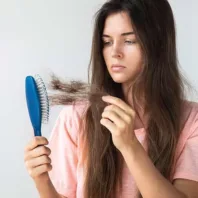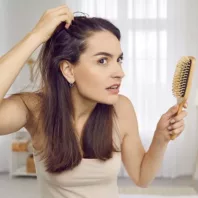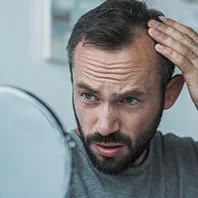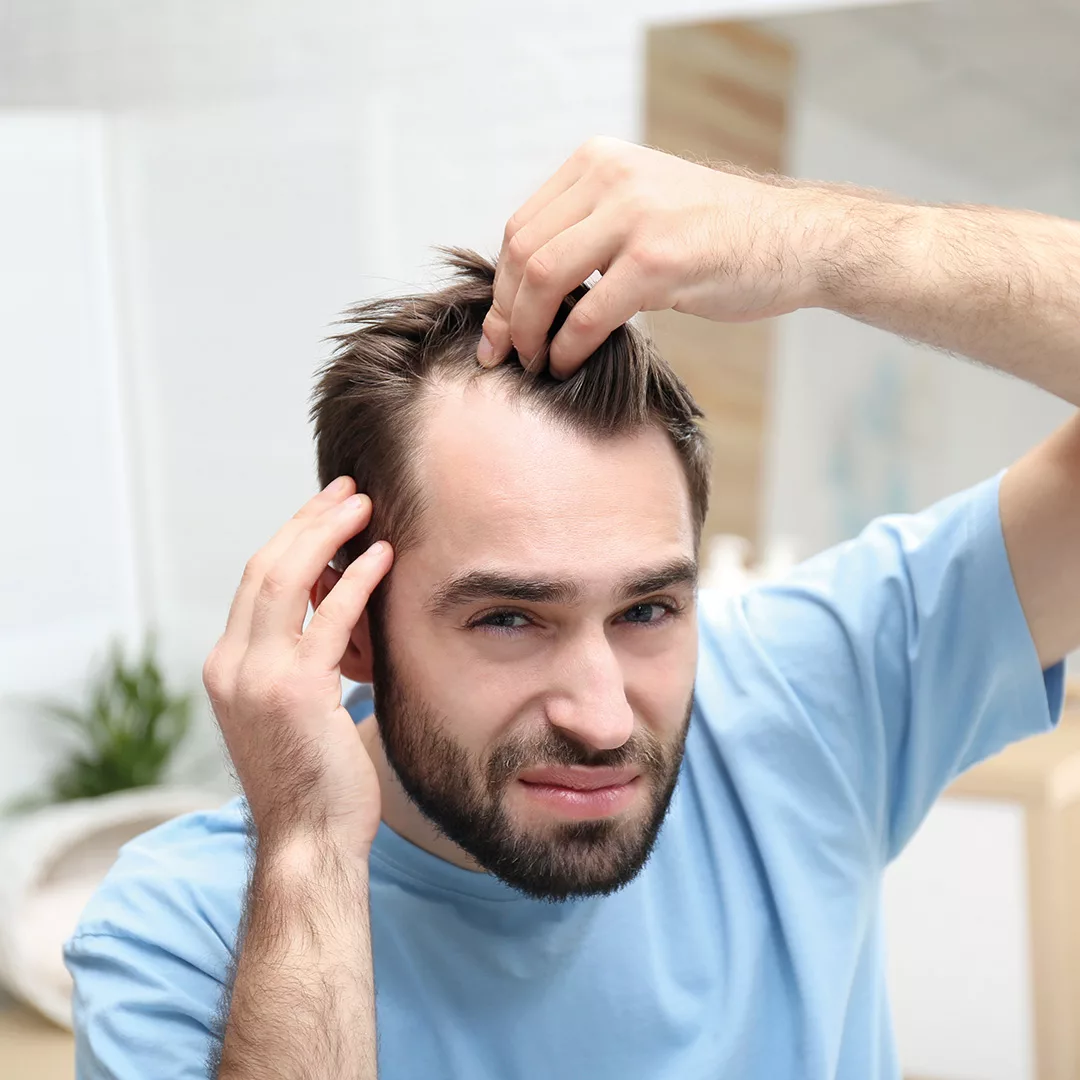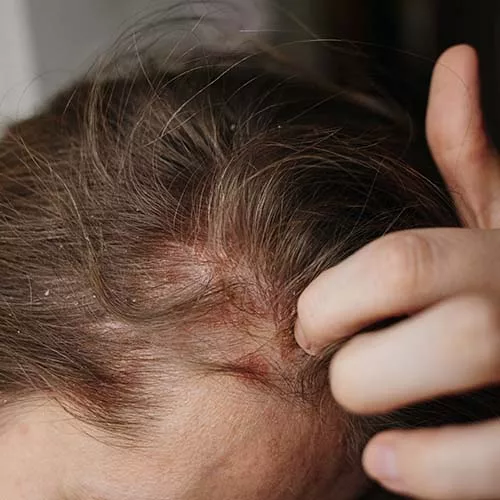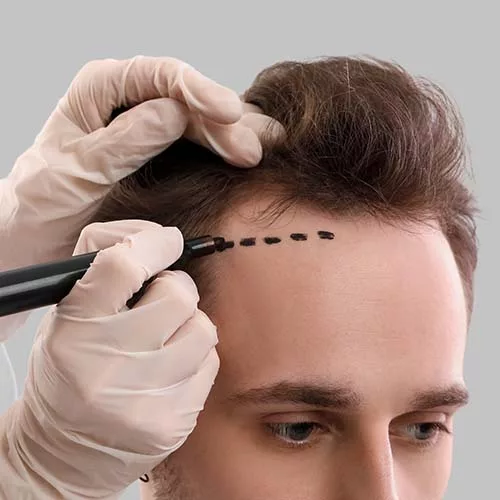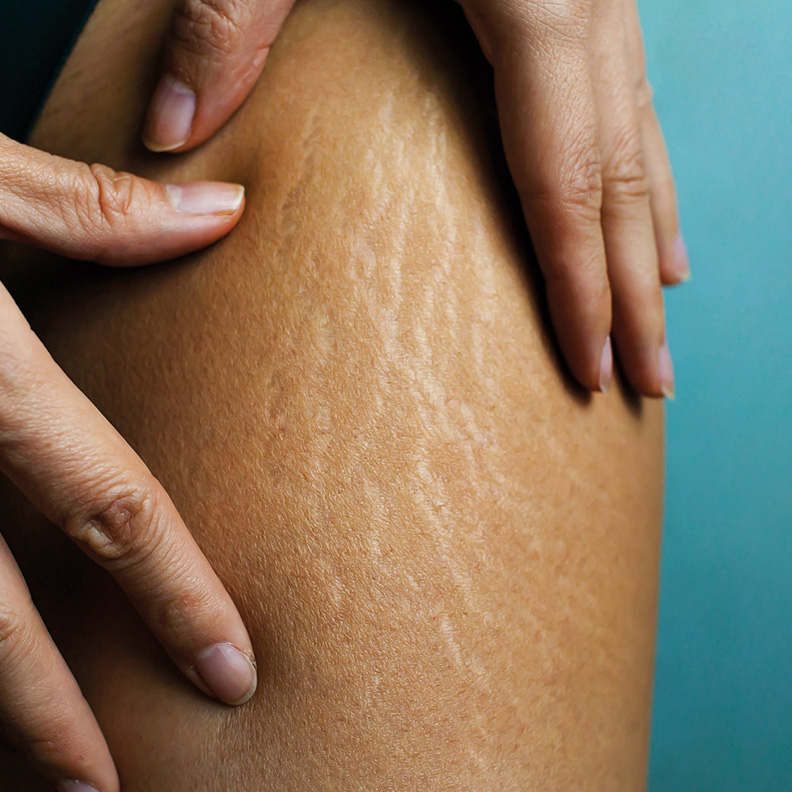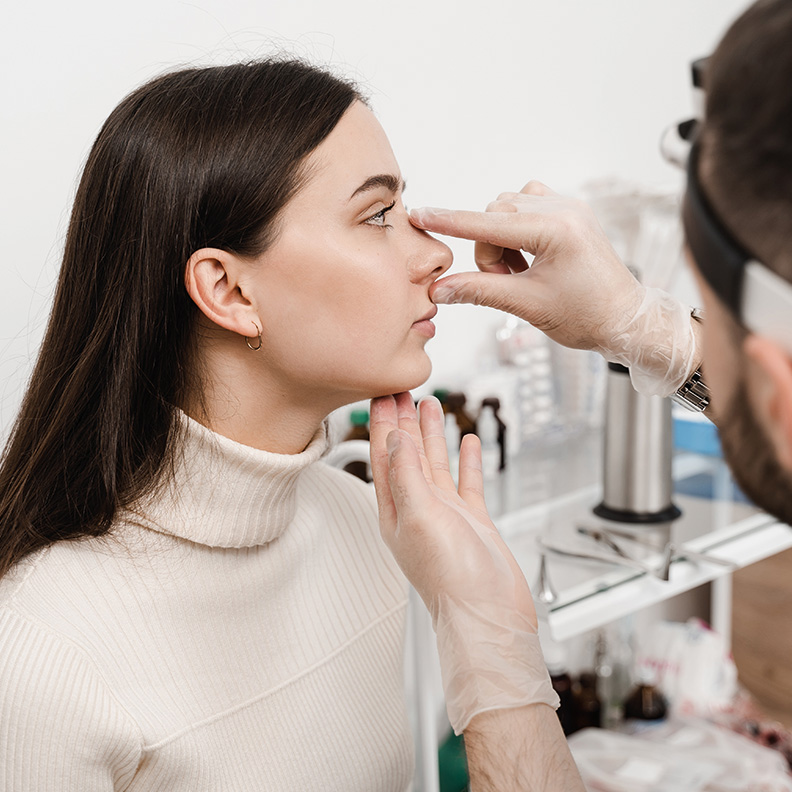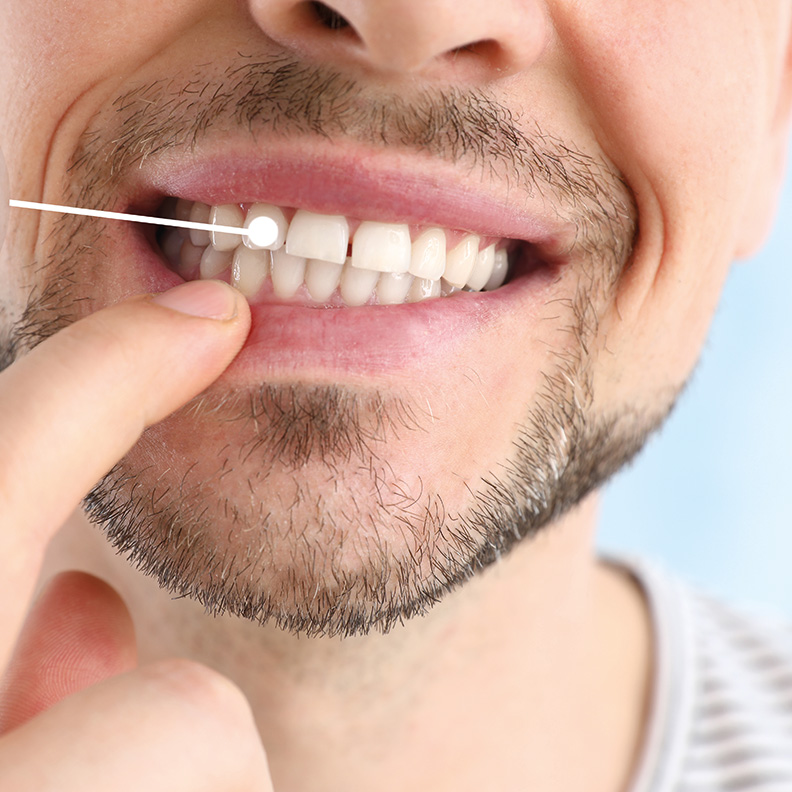Hair Loss In Women The Causes And Solutions
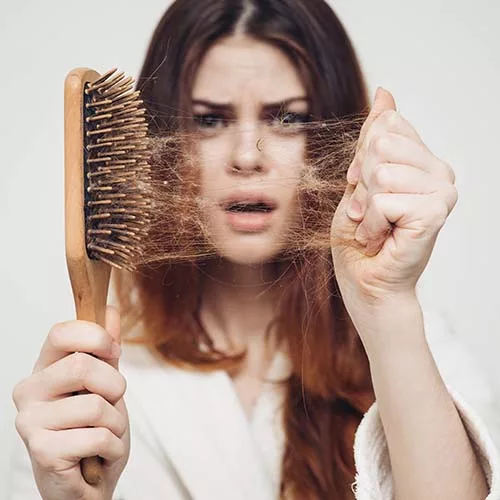
Hair loss can emerge among women due to hormonal changes, autoimmune diseases, or genetic predispositions. Losing about 100 strands of hair daily is considered normal. However, if hair loss exceeds this number, it may signal a problem.
Hair loss does not discriminate based on gender: it affects both women and men. According to statistics, approximately 80% of men and 40% of women in the United Kingdom struggle with genetic hair loss, also known as androgenetic alopecia. However, genetic factors are not always the cause of sudden hair loss.
Hair Thinning in Women
If hair is shedding equally from the entire scalp, this is referred to as diffuse hair loss. The causes are diverse and often related to your lifestyle. Diffuse effluvium can be triggered by persistent stress, lack of sleep, or inadequate nutrition. Other causes of hair loss include medication side effects, hormonal fluctuations, poor nutrition (especially a lack of iron or zinc), and smoking.
Post-Pregnancy Hair Loss
Post-pregnancy hair loss is a natural process and affects almost every woman. Once hormone levels stabilize again, hair loss generally ceases.
Quitting birth control pills can also induce hair loss through hormonal impacts. The pill interferes with a woman’s hormonal balance to prevent pregnancy. After ceasing to take the pill, estrogen levels drop and hair loss can occur.
Alopecia Areata – Round Bald Patches
The exact causes of alopecia areata are yet to be clarified. In this autoimmune disease, one’s immune system perceives hair follicles as foreign bodies and attacks them.
Androgenetic Alopecia in Women During Menopause
Genetic hair loss, medically known as androgenetic alopecia, doesn’t only affect men but also women, although in women this type of hair loss typically starts much later than it does in men.
How to Deal with Hair Loss?
Hair loss can be distressing for women. In cases of diffuse hair loss, a general rule is that hair will regrow once the trigger for the hair loss is removed.
But what if my hair doesn’t come back or I am experiencing hereditary hair loss?
In this case, a hair transplant, as performed at Turkeyana Clinic, for instance, might be a solution. In instances of hereditary hair loss, a hair transplant can be a long-term and permanent solution.
However, in the case of alopecia areata, such an intervention is not possible because the immune system will attack the newly transplanted follicles again.
Consider a free and non-binding consultation with Turkeyana Clinic to discuss your hair loss and what can be done for you.
Vitamin and Mineral Supplements
Taking certain vitamin and mineral supplements can be beneficial for maintaining hair health and reducing hair loss. Biotin, for example, is commonly recommended for boosting hair health. Additionally, vitamin D, iron, zinc, and omega-3 fatty acids may provide protection against hair loss.
PRP Therapy
Platelet-rich plasma (PRP) therapy is another method used in hair loss treatment. This procedure involves taking a portion of the patient’s own blood and then injecting the plasma into the scalp. PRP stimulates hair follicles and can encourage hair growth.
Topical Treatments
Minoxidil is an FDA-approved topical treatment used to treat hair loss. It is valid for both men and women and has the potential to stimulate hair growth. Another popular topical treatment involves Finasteride, and it is usually prescribed for male-pattern baldness.
Lifestyle Changes
Stress management and balanced nutrition also have a significant impact on hair health. Particularly, stress can trigger hair loss, so stress management techniques like meditation, yoga, and adequate sleep can be helpful. A balanced and nutritious diet can also contribute to strengthening the hair and keeping it healthy.
Hair Care Routines
Gentle hair care routines and using the right products are also vital. Massaging the scalp gently can increase blood circulation and strengthen hair roots. Additionally, choosing shampoo and conditioner suitable for your hair type is vital for maintaining your hair health.
Laser Therapy
Low-level laser therapy (LLLT) is also a method used for hair loss treatment. It aims to stimulate hair follicles and, in some cases, can encourage hair growth.
Proper Analysis and Counseling
Particularly in women, it is vital to accurately identify the underlying cause of hair loss. Dermatologists or trichologists can assist in this regard and help you determine the right treatment path.
Battling hair loss varies depending on your individual situation and the underlying causes of the hair loss. Consulting a specialist can help you choose the most effective treatment method and contribute to healthier hair in the long term.
Latest News


















